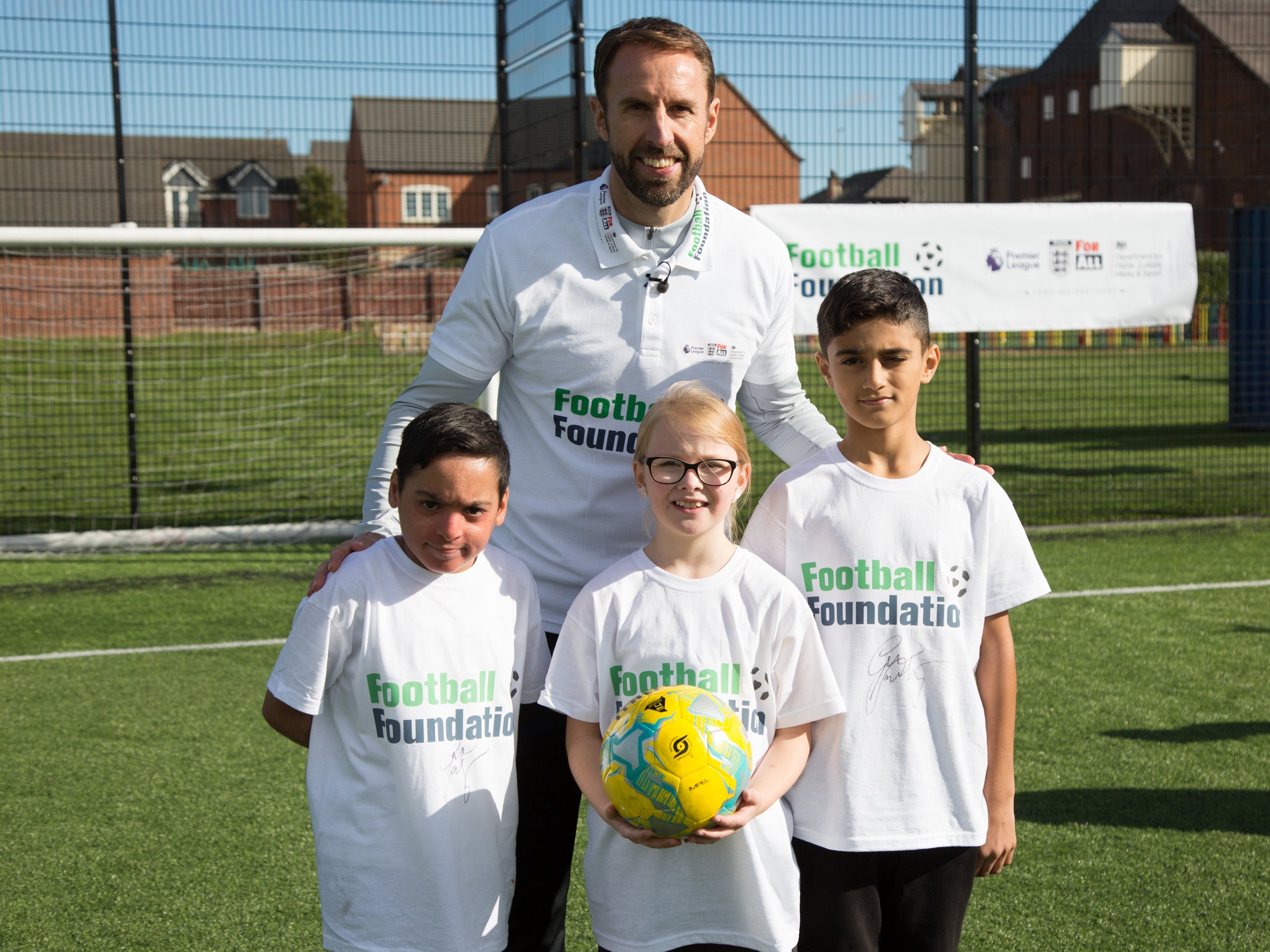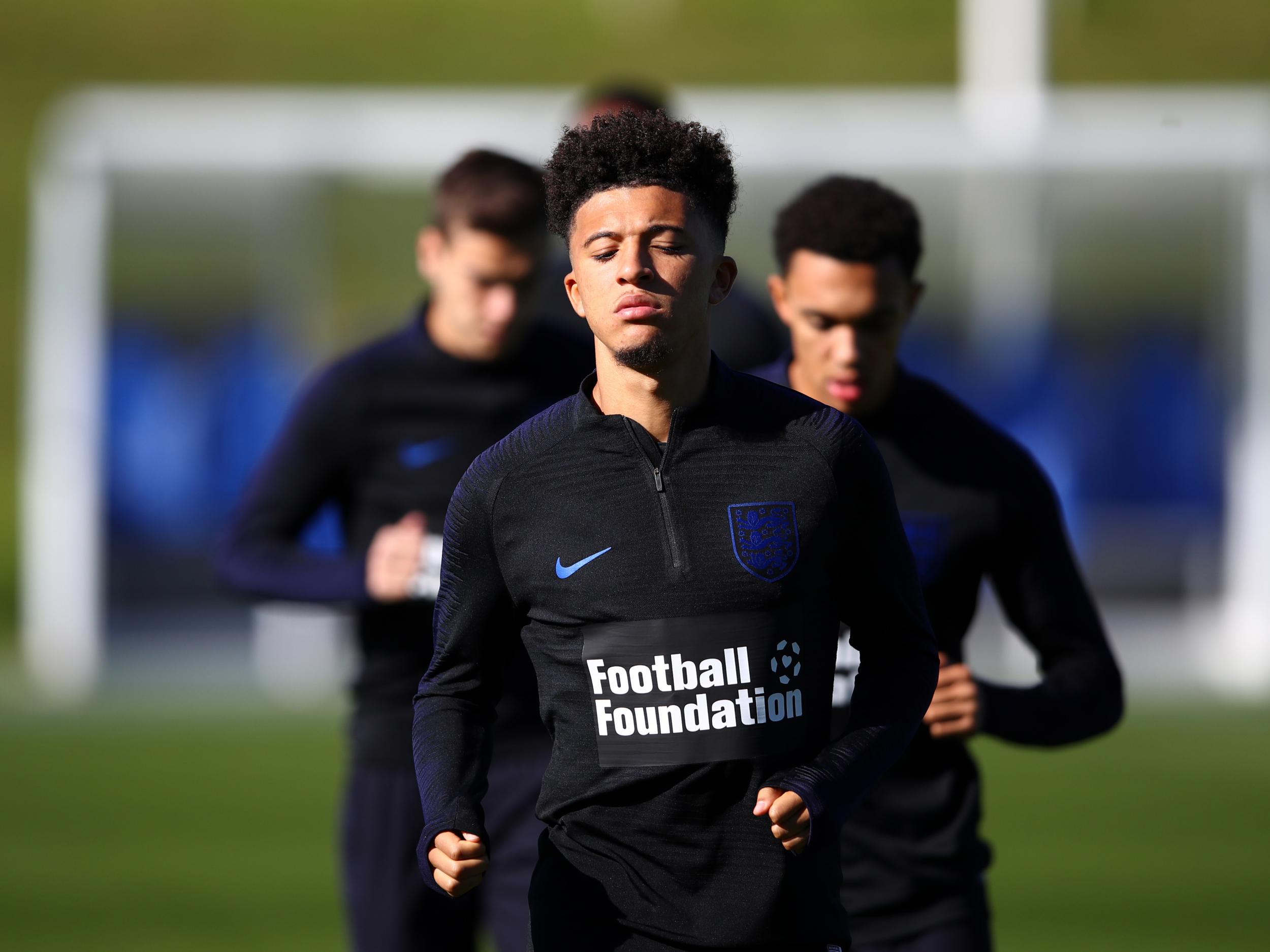England to be sponsored by Football Foundation in timely agreement ahead of potential Wembley sale
The charity was set up by the Football Association, Premier League and Sport England

Your support helps us to tell the story
From reproductive rights to climate change to Big Tech, The Independent is on the ground when the story is developing. Whether it's investigating the financials of Elon Musk's pro-Trump PAC or producing our latest documentary, 'The A Word', which shines a light on the American women fighting for reproductive rights, we know how important it is to parse out the facts from the messaging.
At such a critical moment in US history, we need reporters on the ground. Your donation allows us to keep sending journalists to speak to both sides of the story.
The Independent is trusted by Americans across the entire political spectrum. And unlike many other quality news outlets, we choose not to lock Americans out of our reporting and analysis with paywalls. We believe quality journalism should be available to everyone, paid for by those who can afford it.
Your support makes all the difference.England will wear the Football Foundation's logo on their shirts for the forthcoming Uefa Nations League games against Croatia and Spain.
The UK's largest sports charity, the Football Foundation was set up in 2000 by the Football Association, Premier League and Sport England to invest in grassroots facilities.
The timing of the link-up is hugely significant as the Football Foundation would have a crucial role in deciding how any windfall from the proposed sale of Wembley would be spent.
Fulham owner Shahid Khan has offered the FA £600m in cash and £300m in retained revenues for the stadium and that deal has been inching closer to completion over the last six months.
However, the Football Association is investigating serious allegations of ‘systematic corruption’ relating to the proposed sale of Wembley Stadium.
The FA said in a statement: “We have recently been contacted by Craig Kline who has made a series of allegations about Fulham FC. We are currently in the process of reviewing these allegations.” Fulham reject all claims made by Kline.
The American billionaire hopes to relocate his NFL gridiron team, the Jacksonville Jaguars, to London, while the FA wants to use the money to transform the country's increasingly-stretched community facilities.
Under the terms of the deal, the stadium would continue to stage all the current football and rugby league games it currently hosts, apart from England's home internationals in September and November, as they clash with the NFL season.
Khan would also be prevented from renaming Wembley, have to maintain the venue as a world-class football stadium and the FA would get a share of any profit he made on a future sale.

But despite these safeguards, there are some in the game who see the sale as another example of a national asset being sold abroad, while others believe there are better ways to fund grassroots facilities.
Those points of view are likely to be aired at what promises to be a lively meeting of the FA Council on Thursday, the day before England's game in Croatia.
Selling Wembley is ultimately a decision for the FA Board but the national governing body's leadership has always said it would not proceed without a broad consensus to do so, which means winning over a clear majority in the 127-strong council.
Last month, FA chairman Greg Clarke and chief executive Martin Glenn had hoped to secure the board's unanimous backing but had to settle for an agreement to continue discussions, first with the council and then back at board level.

Last week, the FA invited coaches, fans, parents, players and volunteers to take part in their annual survey of the grassroots scene.
In a statement, Glenn said the survey helped the FA "shape and improve our decision-making processes" across the grassroots game.
"Community football facilities are the perfect example," he said.
"Despite a number of excellent programmes in place, feedback from previous surveys has repeatedly shown many are inadequate and require further investment.
"Whilst happy with the availability of grass pitches, participants generally report they are of poor quality. This key information from within the game allows us to prioritise development and resources in these areas.
"This season we want to reach more participants than ever before and make improvements necessary to ensure the continuous development of grassroots football in this country."
Since its creation, the Football Foundation has invested £1.5bn in facilities, which includes 700 all-weather pitches, 1,000 changing pavilions and 4,000 grass pitches.
PA
Join our commenting forum
Join thought-provoking conversations, follow other Independent readers and see their replies
Comments